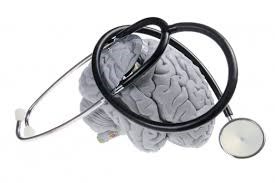Virtual reality could hold the key to unlocking an affordable, reliable and effective device to provide early diagnosis and management of schizophrenia.
A pioneering new study, led by experts from the University of Exeter in collaboration with partners from the Alterego FP7 EU project, has developed a new, ’mirror game’ test using computer avatars to accurately detect specific variations in how patients move and interact socially - well-documented characteristics of the mental disorder.
For the study, the research team asked volunteers to perform a series of specific movements on their own, and then mirror some movements carried out by a computer avatar on a large screen placed opposite them.
The results of these first trials revealed that the test gave a more accurate diagnosis when compared to clinical interviews, and comparable results when compared to more expensive, traditional neuroimaging methods, the team has concluded.
They believe it could open up new, unobtrusive pathways for health professionals to diagnose and treat schizophrenia in the future. They are now looking at conducting clinical trials to confirm the effectiveness of the early detection technique, before it can be employed in clinical practices worldwide.
The study is published in leading scientific journal npj Schizophrenia on Wednesday, February 1 2017.
Dr Piotr Slowinski, lead author of the study and a Mathematics Research Fellow at the University of Exeter, explained: ”Human movement can give a fascinating and sophisticated insight into our personality traits and behavioral characteristics.
”Studying how people move and react to others may seem a simplistic way to help diagnose a patient with such a debilitating condition, but our results were comparable to existing, more expensive neuroimaging methods.
”Although this is still at a relatively early stage, we are confident that clinical trials could reveal the potential of the mirror test to produce a reliable, adaptable and, crucially, affordable, method for diagnosing and monitoring treatment of schizophrenia in patients of all ages, and all stages of the condition.”
Schizophrenia is a psychiatric disorder that affects around one in 100 people worldwide with common symptoms such as delusions and auditory hallucinations, or hearing voices. At present, there is no single test for schizophrenia and the condition is usually diagnosed after assessment by specialists in mental health.
However, the team of experts previously showed that people who display similar behavioural characteristics tend to move their bodies in the same way. The study suggested each person has an individual motor signature (IMS), a blueprint of the subtle differences in the way they move compared to someone else, such as speed or weight of movement.
The team suggested that a person’s IMS - and how they interact with others - could give an insight into their mental health condition, and so pave the way for personalised prediction, diagnosis or treatment in the future.
In their research, the team used a simple mirror game, in which a ’player’ is asked to imitate the movements made by an on-screen avatar. By looking at how the patients move and react to others, and compare it with ’comparable’ movement blueprints for schizophrenia sufferers, the team believe the test can give not only an accurate and quick diagnosis, but also demonstrate how well patients are reacting to ongoing treatment.
Professor Krasimira Tsaneva-Atanasova, who specialises in Mathematics in Healthcare at the University of Exeter, added: ”We have already shown that people who move in a certain way also react in similar ways when performing joint tasks, meaning that our movements give an insight into our inherent personality traits.
”This latest study is a pivotal step forward in using virtual reality as a means to carry out speedy and effective diagnosis, which is crucial for so many people who suffer from this debilitating condition worldwide.”
Bron:University of Exeter












